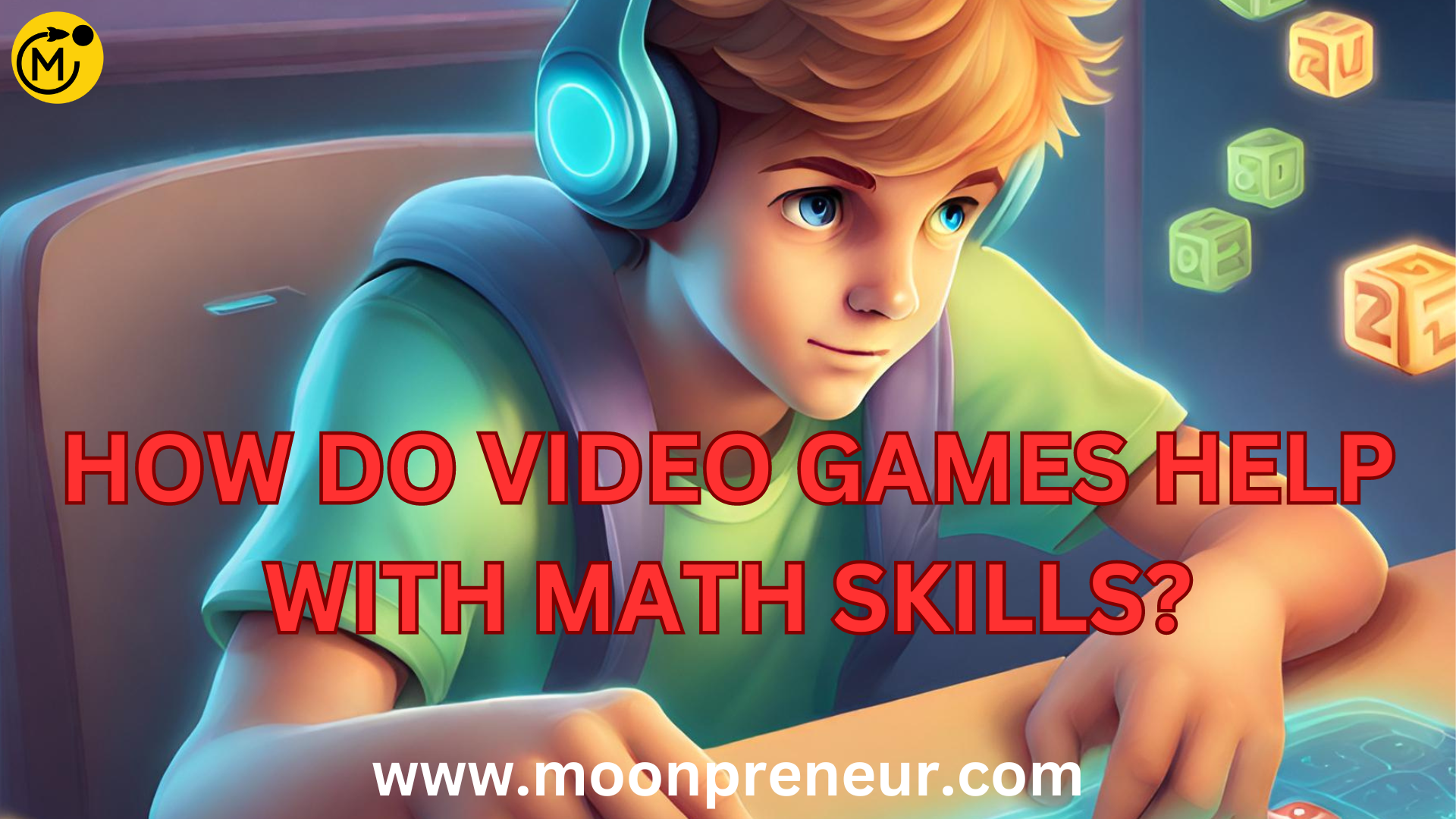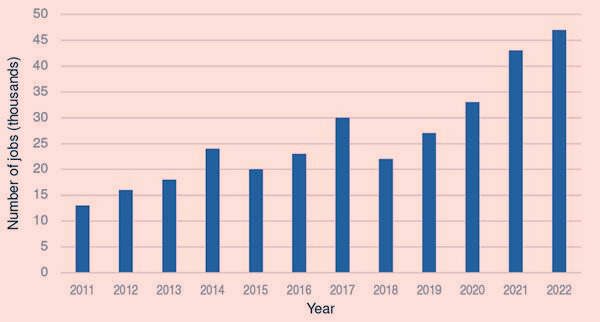
Update: This article was last updated on 13th January 2026 to reflect the accuracy and up-to-date information on the page.
Video game playing causes no harm to young children’s cognitive abilities, a study finds according to the research report published by Science daily.
When kids hear the word “games,” their brains light up like a Christmas Tree with excitement and motivation to take on a challenge rather than cowering in fear at the thought of a boring old subject. Do you know children’s love of games can help them improve their math skills?
Believe it or not, studies have shown that certain video games improve spatial reasoning and mental rotation abilities, which are essential for understanding tricky concepts like geometry and algebra. Additionally, video games help foster problem-solving and critical-thinking skills because children must apply logic and strategy to progress through levels and defeat bosses. For instance, the puzzle game “Tetris” has been proven to improve spatial reasoning abilities in as little as 30 minutes a day over three months. “DragonBox” can improve algebraic skills.
How Do Video Games Help with Math Skills in real life?
Enhancing Cognitive Skills
Video games have been found to enhance a range of cognitive skills, including memory, attention, and perception. Action games, in particular, improve visual-spatial skills, which are essential for geometry and mental rotation.
Playing action video games can also enhance contrast sensitivity, which detects subtle changes in shades of gray, according to a study by JAMA Network Open (2022). This skill is required to accomplish tasks such as reading and driving at night. The study found that participants who played action games showed a significant improvement in contrast sensitivity compared to those who played non-action games.
Problem-Solving Skills
Video games are also great for developing problem-solving skills. Many games require players to solve puzzles and overcome obstacles, which can help develop problem-solving skills, perseverance, and determination. Strategy games, like StarCraft, can improve problem-solving and cognitive flexibility, as well as fluid intelligence, which is the ability to reason and solve new problems.
In these games, players must constantly adapt to changing situations and develop new strategies to win.
Recommended reading: Can Video Games be Used as a Learning Tool?
Educational Benefits
Children can also apply the benefits of video games to math skills in the classroom. Educators can help make learning more fun and engaging by incorporating video games into math education.
The findings of Chen and Yan (2019) say that playing video games has been found to improve cognitive functions and academic performance. The study found that students who played video games performed better in subjects such as math, science, and reading compared to those who did not play video games.
This is a graphical representation of data on how mathematics in computer games is used, as provided here.
How Game-based Learning Can Support Strong Mathematical Practices
The social benefit organization MIND Research Institute examines the reasons for the popularity of games and the learning that children can acquire through them. The institute explores how schools can exploit students’ fondness for digital games.
If game-based education is developed effectively, it can tap into students’ natural motivation and enjoyment of play and guide them toward solving intricate problems.
Recommended reading: 5 Benefits Why Kids Should Study Mathematics
Top video games that can help improve math skills
- Math Snacks – Teaches fractions through gameplay. Players run a food truck and must prepare recipes that require fractions.
- DimensionU – This program uses video games to teach math and language arts. Students create avatars and compete in virtual worlds to solve math problems and complete language arts challenges.
- DragonBox – Designed to teach algebra, it presents algebraic concepts in a fun and engaging way, helping students understand algebraic equations and functions.
- Prodigy – Allows students to practice math skills through adventure-style gameplay. The game adapts to the student’s level and progress, providing a personalized learning experience.
- Minecraft – It teaches geometry and spatial reasoning. Players can build and design structures, which requires them to use geometric concepts such as Symmetry and angles.
How Parents and Teachers Can Leverage Math in Video Games for Learning
Video games don’t have to be mere entertainment; they can also be great learning tools, particularly when it comes to reinforcing math skills. Nevertheless, to unlock the full potential of math in video games, parents and teachers must actively intervene in children‘s gaming experiences. Here are some useful tips:
1. Select the Right Games
Not all games are equally effective in teaching math. Parents and teachers must choose games that incorporate math in video games in the form of challenging activities and problem-solving exercises. Some excellent choices are:
- Prodigy – An adventure-based game that adapts to the child’s math level.
- DragonBox Algebra – A fun way to learn algebra through puzzles.
- Minecraft: Education Edition – Encourages kids to use geometry and spatial reasoning.
2. Stimulate Conversations About Math Topics
Rather than allowing children to play by themselves, encourage them to discuss the mathematics that they are employing in the game. Ask such questions as:
- “How did you calculate the angles while building in Minecraft?”
- “What strategy did you use to solve that algebra puzzle in DragonBox?”
- “How do fractions help you mix potions in Math Snacks?”
These conversations reinforce the connection between mathematics used in video games and its relevance to everyday applications.
3. Balance Video Game Time with Real-Life Math Application
Although video games are great for math education, they must supplement—not supplant—traditional math exercise. Achieve a balanced solution by:
- Restricting play time to 1-2 hours daily.
- Asking kids to transfer what they learn in math through video games to real-life scenarios, like measuring ingredients while preparing food or doing puzzles on paper.
- Employing learning apps in conjunction with gaming to reinforce understanding.
4. Engage in Learning as a Family
Parents can play alongside their children so that they may learn more about how math is used in games. This not only helps bring families closer but also enables parents to point out mathematical strategies in real-time.
5. Monitor Progress and Acknowledge Achievements
Most learning games offer progress tracking and analytics. Parents and teachers must keep an eye on this information to observe improvements in math skills and problem-solving. Commending small wins in gaming and everyday math reinforces confidence and motivation.
By incorporating math in video games into a formal learning plan, parents and teachers can make screen time a chance for growth and skill development.
Addressing Common Concerns About Video Games and Learning
Some parents are concerned about how video games affect the education of their child, particularly with regard to screen time, violence, and diversion from studies. Yet studies have indicated that educational math games can be a great educational help when they are utilized in the right way.
1. Are Video Games a Distraction from Learning?
Not every video game is all about entertainment—there are lots of video games that teach math and keep children interested. There are games like Prodigy, DragonBox, and Math Snacks, which challenge students with math-related questions, strengthening their problem-solving ability. When used moderately, such games can be supportive to conventional learning and not substitute for it.
2. How to Balance Screen Time with Learning?
While excessive gaming can be a concern, setting time limits and choosing video games that teach math ensures that screen time is productive. Parents can:
- Set daily or weekly game-time limits for educational games.
- Encourage children to discuss the math concepts they encounter in their favorite games.
- Use gaming as a reward for completing homework or other educational activities.
3. Do Video Games Promote Problem-Solving and Critical Thinking?
Yes! Most video games that provide math education force the player to think, create strategies, and use mathematical thinking to move forward in the game. Tetris-based puzzle games enhance spatial reasoning, while learning-based adventure games such as Prodigy prompt students to work out mathematics problems before moving to the next level.
4. Can Video Games Replace Traditional Math Learning?
Whereas math education video games are useful tools, they prove most useful when paired with conventional learning methods. Educators and parents can incorporate them into lesson plans to enhance the learning process of math and make it more engaging.
With the right selection of video games that educate students on math and striking a balance, parents can turn screen time into an effective learning experience for their children.
Conclusion
Video games have been found to improve cognitive abilities, such as mathematics ability, memory, attention, and problem-solving. Problem–solving or action–oriented games are especially good at doing this.
Math video games can also be used to make learning fun and encourage students to drill on their mathematics. Using video games as a teaching aid in mathematics has the potential of closing the mathematics gender gap and ensure that all students have equal opportunity to learn.
Moonpreneur is on a mission to innovate conventional education and future-proof tomorrow’s leaders through comprehensive learning solutions. Its Innovator Program is creating tomorrow‘s workforce by upskilling students in AI/ML, Robotics, Coding, IoT, and Apps, equipping entrepreneurship through experiential learning.





























As a mother of an 8 year old boy give me some additional tips on how to choose video games that can help him with math skills?
When choosing video games for your children, look for games that:
Are appropriate for their age and developmental level.Are educational and challenging, but not too frustrating.Require players to use their problem-solving skills and spatial reasoning skills.
How can I get the most out of video games for math learning in my children?
Here are a few tips:
Play video games with your children and talk to them about the math concepts that the games are teaching.Encourage your children to use their math skills to solve problems in the games.Help your children to find video games that are appropriate for their math level and interests.